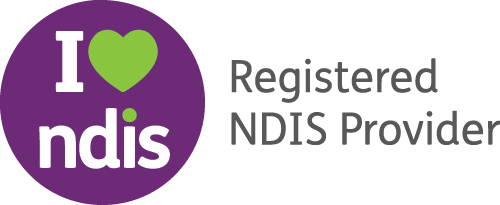NDIS Transport Support Explained: Funding, Eligibility & How to Use It
Getting to work, medical appointments, community activities, or simply visiting family is a vital part of daily life. But for many NDIS participants, transport isn’t always straightforward. The National Disability Insurance Scheme (NDIS) offers transport funding to help eligible participants stay mobile, independent, and connected.
At Hand in Hand, we provide specialist Support Coordination for NDIS participants with complex needs across Melbourne and Victoria. In this guide, we break down how NDIS transport funding works and how Support Coordinators can help you make the most of it.
What Is NDIS Transport Funding?
NDIS transport funding helps cover the cost of travel for participants who can’t use public transport due to their disability. It ensures participants can access:
- Medical appointments
- Employment or education
- Community participation
- Social activities
- Everyday errands and essential travel
This support is usually part of your Core Supports budget. Additional transport-related supports, like vehicle modifications, may be funded under Capital Supports depending on your needs.
Types of NDIS Transport Support
1. Transport Allowance (Core – Category 2)
This is a regular payment for participants who can’t use public transport. It’s paid directly to your bank account and divided into three funding levels:
- Level 1: Up to $1,784/year (limited community activity)
- Level 2: Up to $2,676/year (part-time work or regular outings)
- Level 3: Up to $3,456/year (full-time work/study or frequent travel needs)
These figures are updated annually by the NDIA.
2. Activity-Based Transport
This covers transport costs when a support worker drives you to or accompanies you to appointments or activities. It’s usually charged per kilometre or with a set fee as part of the provider’s invoice.
3. Specialised Transport and Vehicle Modifications
Participants with complex mobility needs may receive additional support through Capital Supports, which may include:
- Vehicle modifications (e.g., wheelchair lifts, hand controls)
- Specialist disability transport assessed by an occupational therapist or other allied health professional
What If You Can’t Travel Alone?
If you’re unable to travel independently due to physical, cognitive, or sensory impairments, the NDIS may fund a support worker to accompany you during travel. This support is usually covered under Core Supports – Assistance with Social and Community Participation or Assistance with Daily Living, depending on the purpose of the trip.
Your Support Coordinator can help ensure:
- The right category is used when claiming transport with support
- Providers understand your needs and goals
- Your funding is sufficient and not misused
How a Support Coordinator Can Help
Navigating NDIS transport funding can be complex. Melbourne Support Coordinators at Hand in Hand provide essential guidance to help you:
1. Secure the Right Transport Funding
- Prepare for planning meetings with evidence and reports
- Outline your transport needs clearly to your planner
- Make sure your funding reflects your lifestyle and goals
2. Connect with Trusted Transport Providers
- Match you with providers who understand your mobility, sensory, or communication needs
- Ensure vehicles are accessible and providers are reliable
- Check compliance if your plan is NDIA-managed
3. Manage and Maximise Your Budget
- Help you track transport usage and avoid over/under-spending
- Identify opportunities to combine supports (e.g., community access)
- Assist with plan reviews if your needs change
4. Plan for Comfort, Safety, and Independence
- Consider mobility aids, preferred travel times, and accessibility
- Include cultural or personal preferences in travel planning
- Ensure transport supports your NDIS goals
Common Questions About NDIS Transport
Can I use Uber or taxis?
Yes. If your plan is self- or plan-managed, you can use any provider, including taxis or rideshare. If your plan is NDIA-managed, you’ll need to use NDIS-registered transport providers.
What if I run out of transport funding?
Your Support Coordinator can help you request a plan review or explore interim solutions.
Can I combine transport with other services?
Absolutely. Transport is often used alongside community access, personal care, therapy sessions, and day programs.
What if I need someone to come with me?
If you’re not safe to travel alone, your NDIS plan may include funding for a support worker to accompany you. This is separate from the Transport Allowance and depends on your goals and support needs.
Transport Shouldn’t Be a Barrier
NDIS transport funding exists to keep you connected and independent. With the right support and planning, getting from A to B doesn’t have to be a daily challenge.
At Hand in Hand, our experienced Melbourne NDIS Support Coordinatorshelp participants across Melbourne and Victoria navigate the NDIS with confidence. We work with you to make sure your transport needs are understood, funded, and well supported.
Call us today on 1800 841 144 or visit our website to learn more.

We hope this blog was useful.
Hand in Hand Support Coordination specialises in personalised NDIS Support Coordination for participants with complex mental health and physical disabilities across Melbourne and Victoria, focusing on Level 2 and 3 support to create tailored support that aligns with goals and budget.




